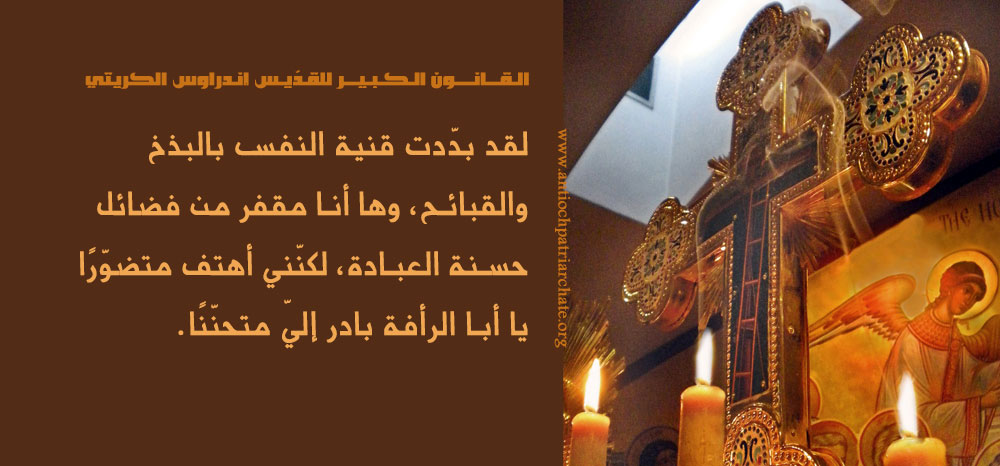
Saint Andrew
Saint Andrew of Crete wrote a number of praises in honor of the feasts of the Lord Jesus, the Mother of God, and the saints.
This constitutes a valuable legacy in patristic literature. Moreover, as a decoration of the celebrations in his church, he placed an unrivaled number of great hymns that are still preserved in our liturgical books to this day.
- In the first week of the forty-day Lent, we read passages from the Canon of Repentance of St. Andrew of Jerusalem, the “Damascene” Bishop of Crete”, from Monday to Thursday. Then it is read completely on Thursday of the fifth week of Lent known as the Thursday of the Great Canon, that is, before the Sunday of saint Mary of Egypt.
Liturgical note:
Saint Andrew of Crete was the first to compose these religious hymns called “canons”, just like Saint Romanos the Melodist was the first to compose the kondakia.
The Great Canon:
This canon has a distinctive effect on the soul of the faithful as a motive for repentance.
In this canon, Saint Andrew refers to all images of the Old and New Testaments that can serve as models for conversion and repentance.
For the penitent believer who, at the beginning of the Great Lent, witnessed the image of himself in Adam sitting at the door of Paradise, these examples, which are derived from the Bible, help him realize that he condenses in his life the sins of the whole world. Hence, he can only seek salvation with tears, asceticism, and prayer.
The Canon of Repentance
The canon consists of odes, which is a Greek word meaning "hymn". Each canon has about 52 stanzas.
The canon, is lyrical rather than narrative, unlike the kondakion. The great canon, for example, speaks of repentance, of returning to God, and of spiritual struggle, although it remains influenced by the style of the hymnographer.
The canon later developed with St. John of Damascus (675 AD - 753 AD), St Cosmas, Bishop of Mayuma, and St Theodoros the Studite (759 AD - 826 AD), and his brother in Asia Minor.








